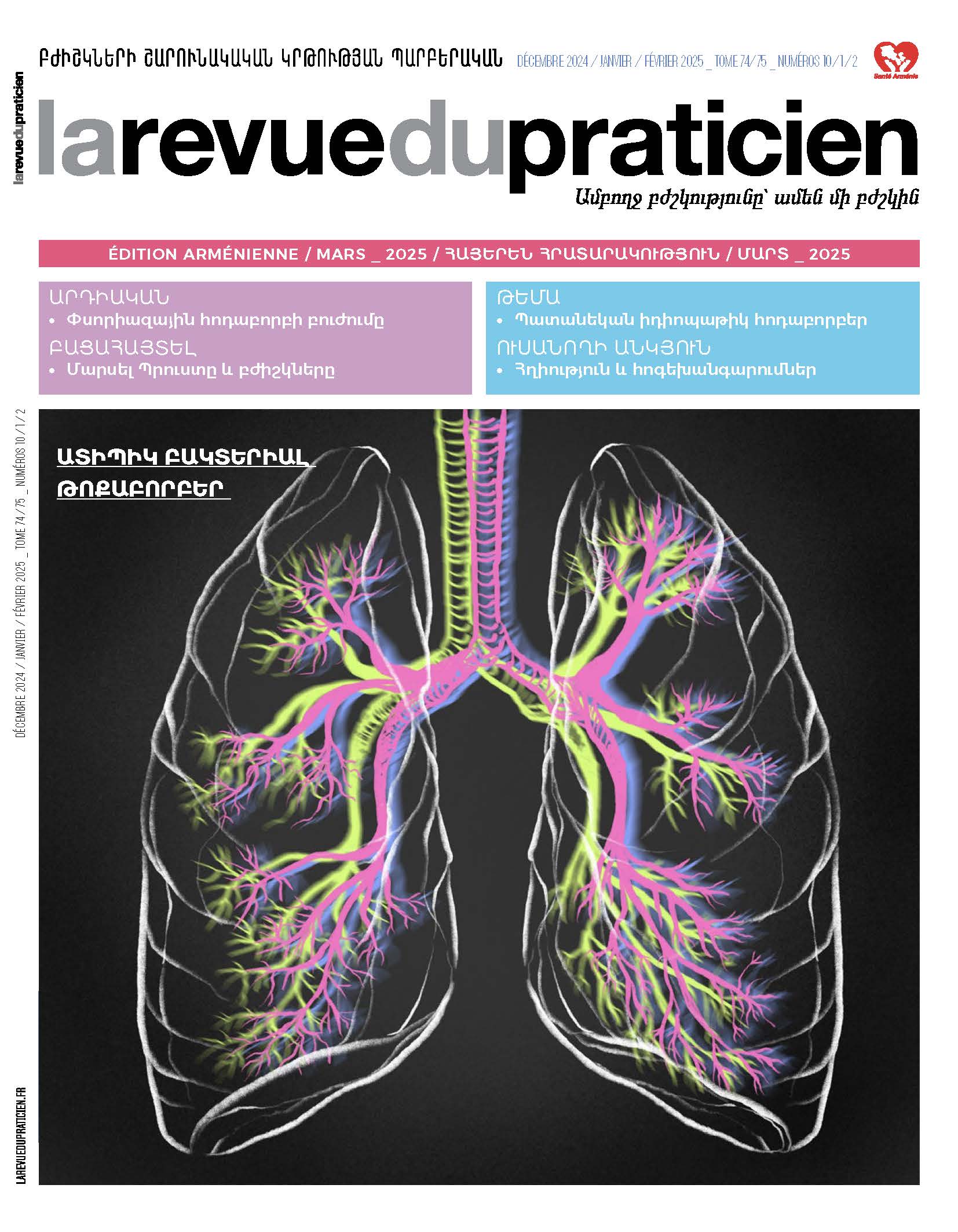Non systemic forms of juvenile idiopathic arthristis 33
Arthur Felix, Cécile Dumaine, Ulrich Meinzer.Abstract
Juvenile idiopathic arthritis (JIA) is a group of diseases defined by the presence of arthritis of more than 6 weeks duration in patients aged less than 16 years after eliminating differential diagnosis. The international classification based on clinical and biological criteria defines each type of JIA: systemic, oligoarticular, polyarticular with and without rheumatoid factor, enthesitis related arthritis, and psoriatic arthritis. Some forms have clinical presentations and particularities specific to the pediatric age. The therapeutic management is multidisciplinary. It is coordinated by a hospital doctor from a reference center or a center of competence in pediatric rheumatology, in collaboration with the attending physician, with the assistance of other specialists depending on the clinical picture. Today, the prognosis of JIA is generally good thanks to progress in management algorithms and the availability of biotherapies for severe forms. This article provides an overview of the different types of JIA and the clinical, biological, and first-line management of suspected pathologies in children.
Keywords :
Juvenile Idiopathic Arthritis.
